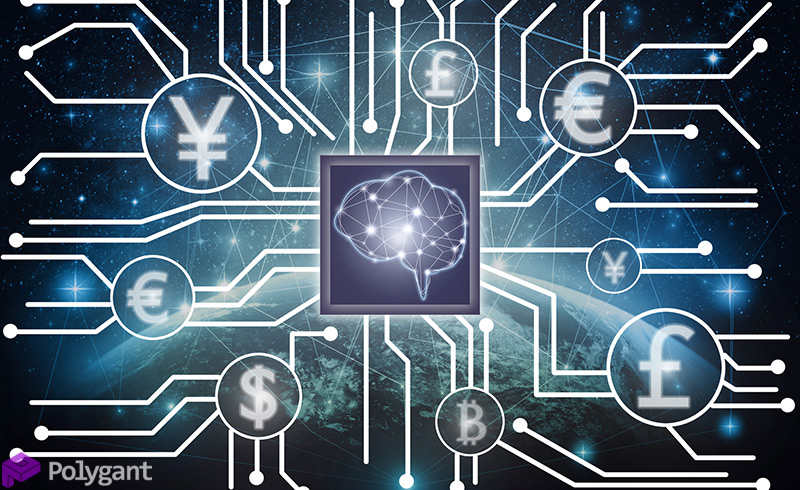13Can you trust Artificial Intelligence (AI) money management? Is it able to effectively cope with this task? While ordinary people are in doubt, professional financiers are increasingly taking this technology to their service. Goldman Sachs and JPMorgan Chase, the largest American banks, were the flagships. In total, this fintech segment is estimated at 5.5 billion dollars. These are not startups, but big business.
For whom it works
In the financial sector, artificial intelligence helps to collect, analyse, and verify tremendous amounts of data. Companies such as Kensho and Peak.ai produce necessary technological solutions. Financial companies rank second in terms of investment in AI, with only technology giants investing more.
Artificial intelligence also came to stock markets, where it began to engage in forecasts and modelling for trading. And while classic markets or Forex have other useful tools for technical analysis, for the cryptocurrency market, AI is an indispensable assistant. This is a young and extremely volatile market. The amount of data for analysis is relatively small, which makes it difficult to build cryptocurrency behaviour scenarios. To assist timid traders, companies such as RoninAi and Neotic develop programs predicting the dynamics of cryptocurrencies. Their software is designed not only for large institutional traders but also for private ones.
Artificial intelligence competently creates forecasts on a limited amount of data and offers accurate models. How does it work?
How artificial intelligence works
AI technology has advanced significantly since the advent of machine learning and neural networks. Systems based on them can analyse large amounts of data much faster and more efficiently than the human brain. It significantly reduces the cost of money circulation processes.
Moreover, artificial intelligence works even better in conjunction with blockchain capable of distributing and transmitting data. For example, in robotics, the combination of AI and blockchain controls a swarm of robots more efficiently than only AI due to the decentralized distribution of results.
So many algorithms created for fintech use the synergy of the two technologies. Numerai service is engaged in hedging risks, and Neureal models financial consumer behaviour. Application tools for business provided by the IT industry leader IBM combine Watson’s supercomputer system with a blockchain platform.
The only difficulty that the AI is not able to overcome (and probably will never overcome) is the legal responsibility for the possible occurrence of failures, hacker attacks, or just mistakes. These risks must be hedged.
Will there be a place for humans?
The reason why fintech seeks to combine new technologies with human participation is not the extreme conservatism of banks. Human decisions still cannot be perfectly reproduced algorithmically. Studies show that the reason for this is the lack of emotional experience in algorithms.
Experiments by businessman Aaron Edell demonstrated that if you entrust conducting exchange transactions to AI only, it can make up to 46% of errors. Experts say that dry calculation and rationality are not enough, and the market requires intuition and subtle emotions. Mark Fenwick, Professor of Kyushu University (Japan), confirms their findings.
Artificial intelligence, combined with blockchain, can completely change the financial industry. This is not just optimisation, but a completely different approach to money management, where the focus is on the ability to instantly analyse big data and predict the behaviour of currencies, companies, and customers. Nevertheless, it is too early to scrap top managers: their competitive advantage — emotional intelligence — is still unreachable for artificial intelligence.


 Telegram
Telegram 